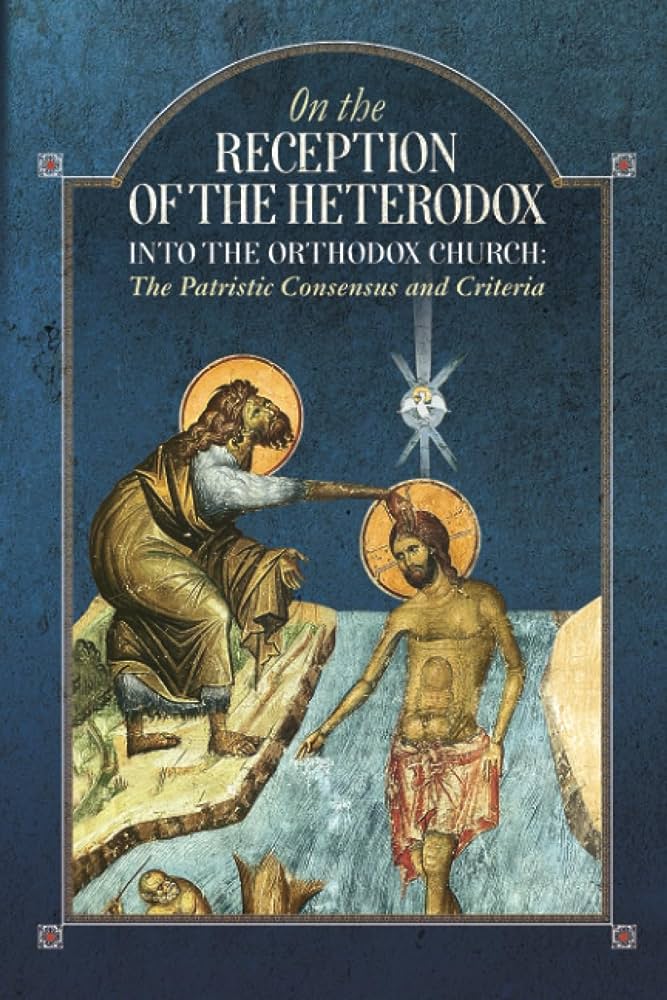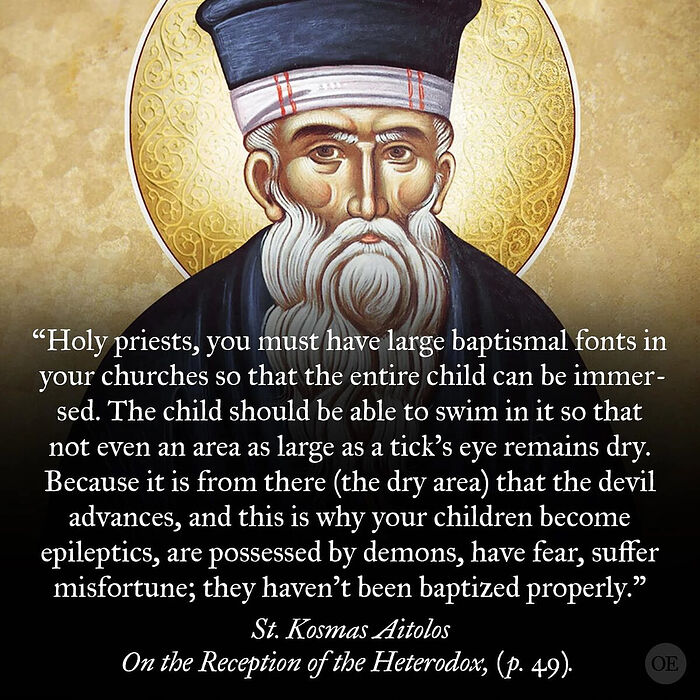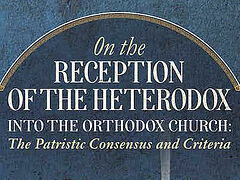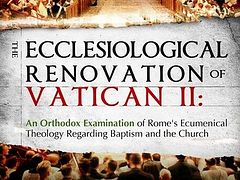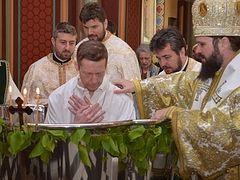The recently released book "On the Reception of the Heterodox into the Orthodox Church: The Patristic Consensus and Criteria" from Uncut Mountain Press, has provoked a wide range of responses, and for a 442 pages book, targeting an Orthodox audience, it has been selling very well. The book makes a compelling case for why the reception of converts by baptism should be the norm, especially in our time, and given that few non-Orthodox Christians baptize by a triple immersion. This has been the policy of the Russian Orthodox Church Outside of Russia since the 70's, and I think this policy makes sense, though it does allow the bishop to apply economia in situations in which it makes sense.
I have seen people criticize the book in terms of its recounting of the history of how the heterodox have been received, but I have not yet seen anything that seemed substantive. Perhaps such a critique will be forthcoming. If so, I would be happy to read it.
An unfortunate aspect of many of the responses to this book has been that some have taken quotes from it, made them into memes, and posted them online, and so tossed them out without any context.
For example, there is a meme with a quote from St. Kosmas Aitolos, which says:
Holy priests, you must have large baptismal fonts in your churches so that the entire child can be immersed. The child should be able to swim in it so that not even an area as large as a tick's eye remains dry. Because it is from there (the dry area) that the devil advances, and this is why your children become epileptics, are possessed by demons, have fear, suffer misfortune; they haven't been baptized properly (On the Reception of the Heterodox, p. 49f).
I have not read the original book that this quote was taken from, and so don't know what other context there may have been for it, but there are several problems with taking this quote literally, and assuming it to be true on face value. For one, it is a completely acceptable form of economia to baptize someone who is infirm or in danger of death by pouring, and so in such cases there are areas far bigger than a tick's eye that remain dry. And yet, the Church has never suggested that this imperiled the souls of those baptized in this way. It is certainly not a good practice to fail to fully immerse a baby who is being baptized under normal circumstances, but there are areas of the Church in which this practice has unfortunately been fairly common. Obviously such practices should be corrected, but I don't think we can say that entire portions of the Orthodox Church are unbaptized. One should also be careful not to advance such a quote as a normative Orthodox view when it is not something also stated by other saints and fathers of the Church.
I remember many years ago discussing some of the extremes of those who were associated with the Holy Transfiguration Monastery in Boston while they were part of ROCOR, with someone who was either a Greek themselves, or familiar with Greek culture (I can't remember the specifics after a few decades), who said that Greek priests often overstate things because that is the only way they can get Greek people to pay attention, but the problem with the converts associated with the Boston Monastery was that they took everything they were told literally, in a way Greeks typically would not.
I have been in communication with someone who was baptized as an adult in an Orthodox monastery, but he stood in a tub, and had three buckets of water poured over him. When he saw this quote, he was quite troubled, and wondered if he was even truly in the Church. He wanted to know if he should have a corrective baptism. I told him that I didn't think he did, but that he could ask his bishop, and if his bishop told him that he should have a corrective baptism, he should do what the bishop told him... but that if the bishop told him otherwise, he should not allow himself to be troubled by the matter.
What I wish this book had done was balance the excellent case it makes for how converts should be received with a discussion of how economia supplies what is lacking, and also about how bishops have the power to bind and to loose, and that we should assume that what they bind or loose on earth is in fact bound or loosed in heaven (Matthew 18:18).
When a priest is ordained, the bishops prays the prayer:
The grace divine, which always healeth that which is infirm, and completeth that which is wanting, elevateth through the laying-on of hands, N., the most devout Deacon, to be a Priest. Wherefore, let us pray for him, that the grace of the all-holy Spirit may come upon him.
No one is worthy to be a priest of the Most High God, but we believe that with all of our shortcomings, the Holy Spirit supplies what is lacking in us to make us what we are otherwise unworthy to be.
I was baptized as an adult, by triple immersion. But what if the priest somehow accidentally left an area of my body dry because the font wasn't big enough? I don't know if this happened or not (this was nearly 33 years ago), but I believe that if it did, the Holy Spirit would supply whatever was lacking in the form of my baptism. Most members of the Orthodox Church are baptized as infants. They obviously would have no way of knowing whether some area the size of a tick's eye remained dry. Having mass corrective baptisms, just in case, would obviously not be a good way to handle such things.
Furthermore, St. Ignatius of Antioch, when speaking of the authority of the bishop in relation to the sacraments performed by those under him, says:
Let no one do anything that has to do with the church without the bishop. Only that Eucharist which is under the authority of the bishop (or whomever he himself designates) is to be considered valid. Wherever the bishop appears, there let the congregation be, just as wherever Jesus Christ is, there is the catholic church. It is not permissible either to baptize or to hold a love feast without the bishop. But whatever he approves is also pleasing to God, in order that everything you do may be trustworthy and valid (To the Smyrnaeans 8:1b -2, from "The Apostolic Fathers," 2nd edition, trans. J. B. Lightfoot and J. R. Harmer, ed Michael W. Holmes, (Grand Rapids, MI: Baker Book House, 1989) p. 112f).
Obviously, there are limits to what a bishop can approve, but what we are talking about are things that have been going on for a long time, and were not objected to by many saints of recent memory.
Again, I agree with the main thrust of the book when it comes to what should be done as a rule when receiving converts, but when it comes to what should be done about those cases when bishops see things differently, I think we should be cautious about sowing doubt in the minds of the faithful.
For More Information, see this video discussion on the topic:

